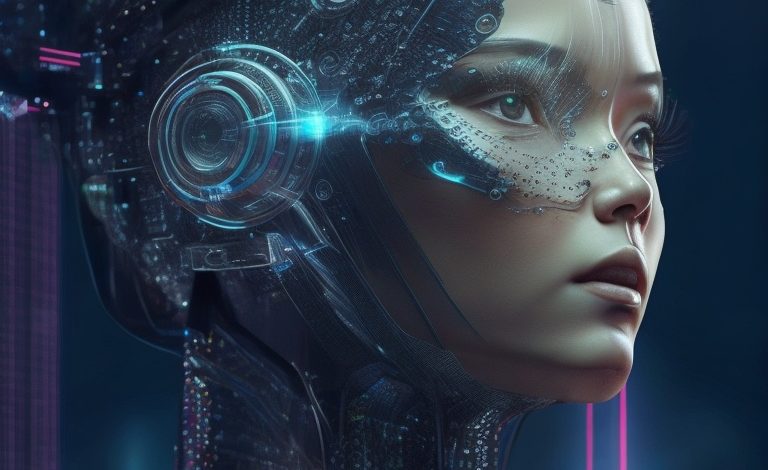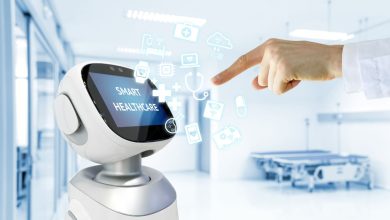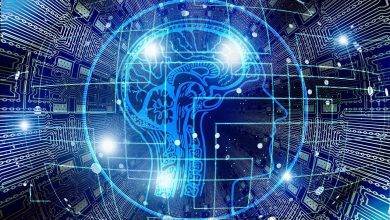The Future of AI Technology

I will discuss “The future of AI technology” in this blog post. Artificial intelligence’s impact on computers is one cause for that impact. Artificial intelligence (AI)-enabled computers can analyze vast volumes of data and use their expertise to make the most informed judgments and groundbreaking discoveries in a fraction of the time it would take a person.
The Future of AI Technology- What Sectors Will AI Affect?
Some industries are only starting with AI, while others are seasoned pros. They each have some ground to make up. Whatever the case, AI’s effects on everyday life cannot be denied.
Use of AI in Transport
The transportation industry stands to benefit greatly from AI. Some ways in which AI will affect the transportation sector include self-driving automobiles and route planners. Even if they aren’t flawless, autonomous cars will eventually take us where we need to go.
AI in Fabrication
Artificial intelligence has traditionally benefited the industry. Since the 1960s and 1970s, AI-enabled robotic arms and other production bots have been used effectively. Sensors using predictive analysis keep equipment running smoothly, and industrial robots typically operate with humans to do specific tasks like stacking and assembly.
Healthcare AI
AI changes how people interact with doctors and nurses, which can initially seem counterintuitive. Artificial intelligence’s ability to analyze large amounts of data has already improved the accuracy and timeliness of medical diagnosis, the development of new medications, and the use of virtual nurses to keep tabs on patients.
Educational AI
Using AI in the classroom will impact students of all ages. To digitize textbooks, detect plagiarism, and track students’ emotional states to determine who is having difficulty and who is bored in the classroom, artificial intelligence (AI) uses machine learning, natural language processing, and facial recognition. In the future, AI will make it possible to tailor lessons to each student.
Media and AI
Journalists also use AI in their work and will continue to benefit from it. The Associated Press’s usage of Automated Insights, which generates hundreds of earning reports and articles annually, serves as one such. However, when generative AI writing tools like ChatGPT hit the market, concerns regarding its use in journalism are rampant.
Customer Service AI
Most consumers detest receiving robocalls, yet artificial intelligence in customer service may provide the sector with data-driven solutions that offer valuable information to the client and the supplier. Chatbots and virtual assistants are two examples of artificial intelligence (AI) systems transforming customer service.
The Future of AI Technology- AI’s Effects on Society
An Imminent Future for AI
Google DeepMind’s AlphaGo Zero. On the other hand, research on a particular subject, like famous people or musical genres, inspires a unique visual or aural work.
Artificial intelligence may have far-reaching implications on environmental issues like sustainability and climate change. In a perfect world, cutting-edge sensor technology would help make urban areas more spacious, cleaner, and liveable for their inhabitants.
AI and Risk to Privacy
There has been a lot of talk about the adverse effects on privacy that AI’s dependence on big data may have in the future. It’s easy to find examples of technology gone wrong in the news, from Cambridge Analytica’s Facebook shenanigans to Amazon’s spying on Alexa. In 2015, Apple CEO Tim Cook blasted data mining tactics used by Google and Meta.
The authors concede that people may use friendly approaches like spam filters and recommendation engines to predict future behavior by amassing a large amount of data. However, there is legitimate worry that it may compromise fundamental rights like privacy and eliminating bias.
The Future of AI Technology- Getting Ready for AI’s Future
Artificial general intelligence
Artificial global intelligence (AGI) is a fictional kind of intelligence. AGI is based on the premise that machines may learn to do any task that requires intelligence at the same level as humans and other animals. An alternative definition of artificial general intelligence is a system capable of competing or exceeding human performance in all economically relevant tasks. OpenAI, DeepMind, and Anthropic all have the same goal: to build artificial general intelligence.
AGI researchers and experts continue to have differing views on the timing of its development. According to some, it may take years or decades, a century, or never. Deep learning systems like GPT-4 may be early AGI or need additional methodologies.
There is disagreement about whether or not AGI might endanger mankind. For instance, OpenAI views this threat as existential, while others believe it is unlikely to happen anytime soon.
The Future of AI Technology- How Risky is AI?
In light of what is now possible with AI, it is essential to consider and plan for the following potential downsides of AI:
Automation of occupations that people now perform:
The workplace and human employment will alter as a result of AI. Some jobs will be lost due to advances in artificial intelligence. People will have to adjust and find other interests to replace the psychological and social benefits of working.
Legal, political, and societal repercussions:
Bostrom suggests that instead of refraining from developing AI, “Our emphasis should be on positioning ourselves in the best possible way so that when all the parts come into place, we’ve done our homework. We have created scalable AI control techniques and given ethics, governance, and other factors a lot of attention. After which, you may continue with a very positive result. AI may have severe consequences if our government and industrial institutions don’t set rules, regulations, and commitments now.
Terrorism facilitated by AI:
With the advent of remote and nanorobot assaults, autonomous drones, robotic swarms, and other forms of artificial intelligence, warfare will alter. We can’t only focus on preventing a nuclear arms race; we also need to monitor the development of autonomous weapons worldwide.
AI bias and social manipulation:
It’s still possible that its creators will inject bias into AI development. If the data sets used to train the AI are biased, the results will also be prejudiced. The 2016 U.S. presidential election is only one example of how artificial intelligence may be abused for social engineering and information amplification.
AI monitoring:
The benefits of artificial intelligence’s face recognition technology include unlocking phones and accessing buildings without a key. However, various human rights groups have expressed concern about the increased public scrutiny that this has prompted. The police and governments of China and other countries utilize face recognition technology to spy on their populations illegally. Bostrom argues that there are positives and downsides to using AI to keep tabs on the world through surveillance data, cameras, and social media.
Deepfakes:
Thanks to advances in AI, it’s easy to make “fake” movies that star real people. Without the owner’s knowledge or approval, they may be used for various malicious purposes, including spreading false information, creating porn utilizing a person who isn’t acting in it, and more. As technology improves, it becomes easier for con artists to fool more people.



